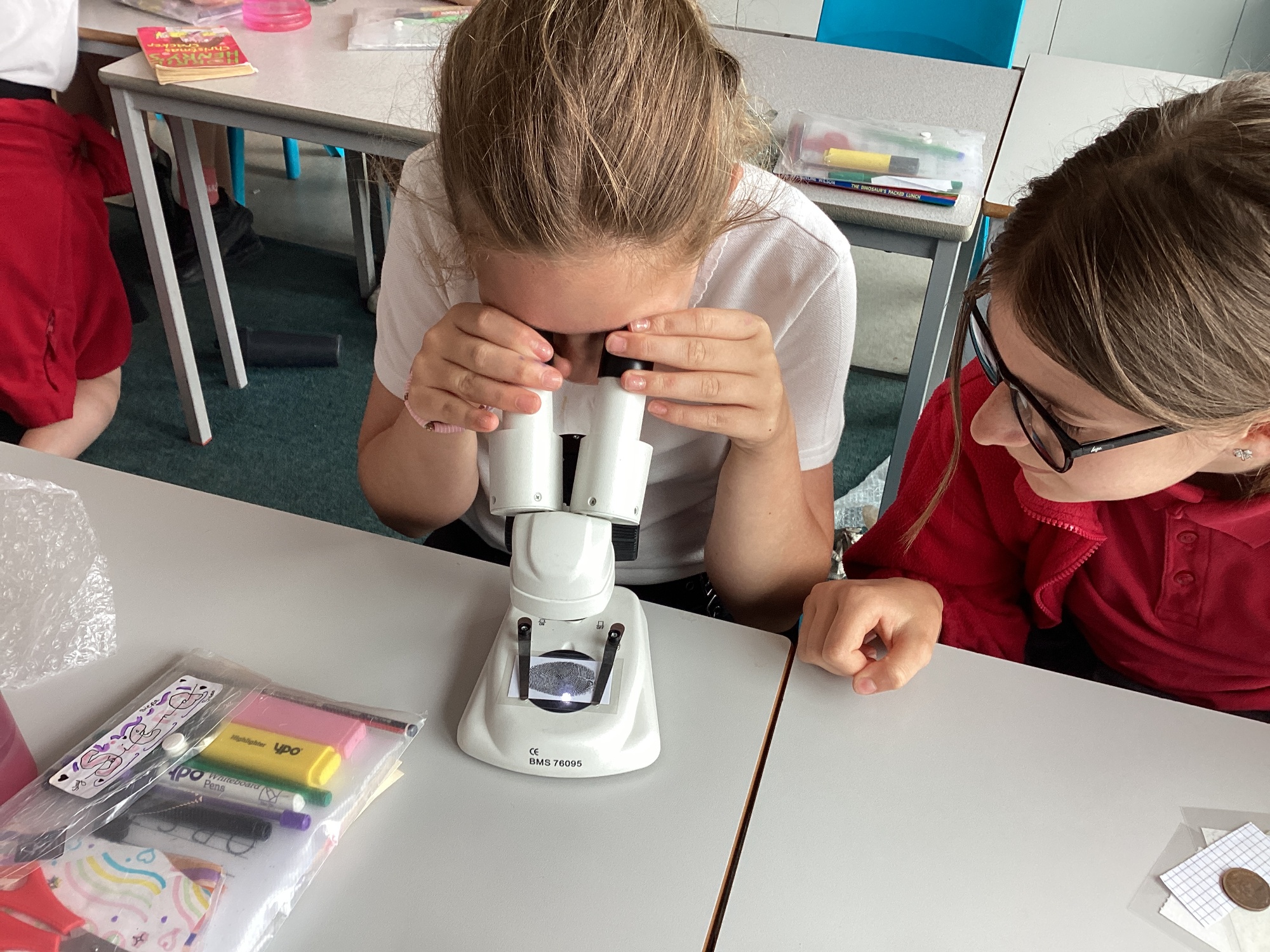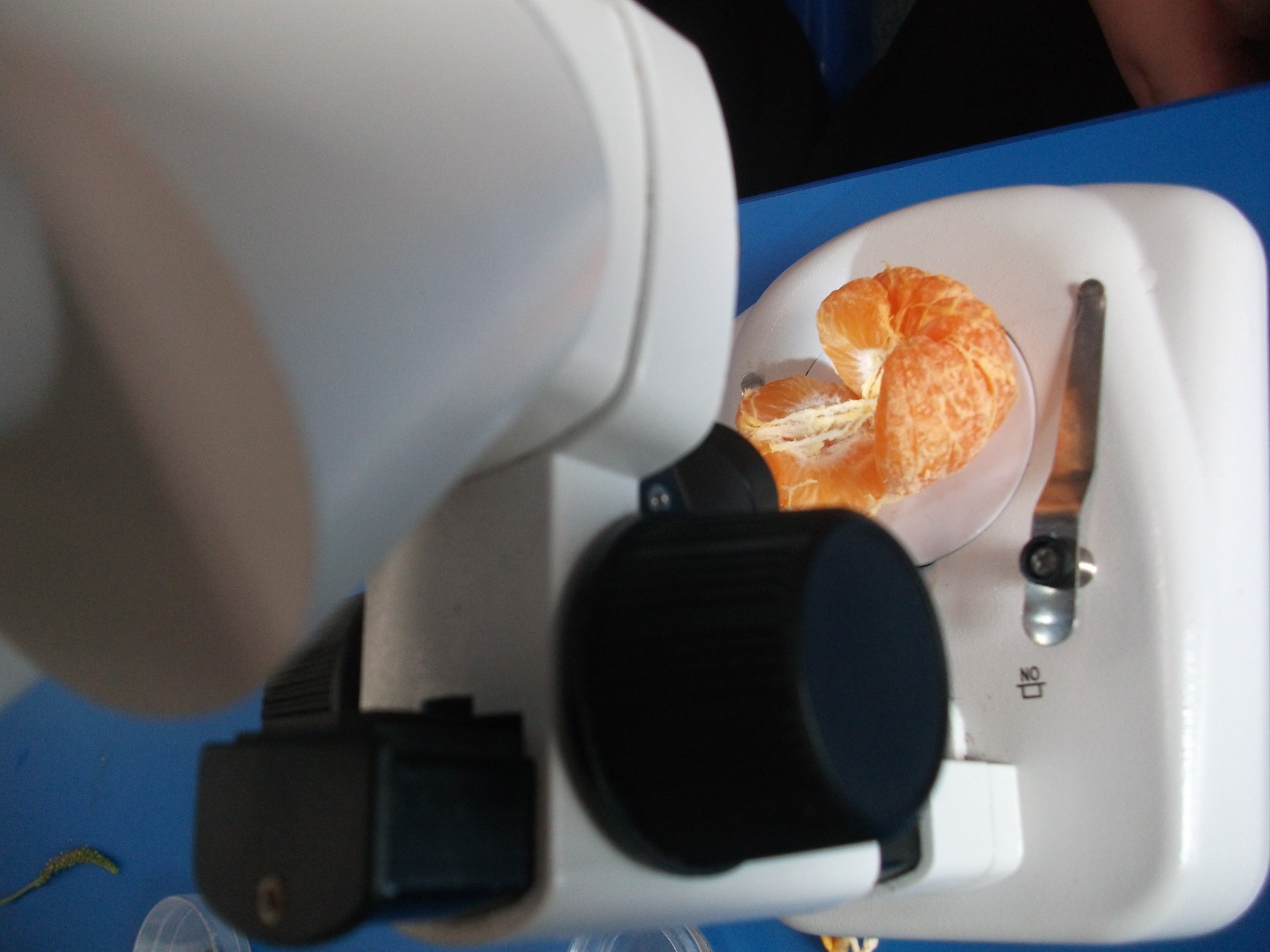Science
OUR INTENT
We want our children to enjoy Science and to be inquisitive about the world around them. In addition to their regular Science lessons, our children also enjoy Science Week - where we dedicate further time to this important subject. More information about our Science Weeks can be found by clicking on the link on the right of this page.
We want our children to:
- Love Science and to have fun! We want children to develop their self-confidence, inquisitiveness and curiosity through their Science experiences at our school.
- In science, we hope to inspire our children by giving them the opportunities to pursue their natural curiosity; promoting the experience of exploring and investigating scientific phenomena, in a range of contexts, to ensure a continually evolving knowledge and understanding of the world around them.
- Develop scientific knowledge and conceptual understanding through the specific disciplines of biology, chemistry and physics
- Develop understanding of the nature, processes and methods of science through different types of science enquiries that help them to answer scientific questions about the world around them
- Be equipped with the scientific knowledge required to understand the uses and implications of science, both today and for the future
- Generate and explore their predictions through exciting experiments and investigations. Through these experiments and investigations, where children learn about the importance of testing in a safe, fair and controlled manner, we want children to be able to communicate their findings through recording graphs and explaining their conclusions.
- Learn through hands-on practical activities which enable children to find out for themselves by seeing it happen with their own eyes. We want children to be able to observe what is happening and then make further inference during experiences by building upon prior knowledge.
- Our children will be encouraged to ask questions, experiment, reflect, make and learn from mistakes, in a safe environment. Through this they will acquire and apply core skills which equip them for an ever-changing world.
- Acquire the necessary vocabulary to enable them to interpret, describe and explain their reasoning.
- Engage with Science outside of school and provide opportunities, through assemblies and wider school communication available to the children outside of school. We want children to engage with real, local science opportunities and scientists. We want them to take their learning outside of the classroom. We want them to see the opportunities that a future career in Science might bring.
BRITISH SCIENCE WEEK 2025
This year’s theme for British Science Week was ‘change and adapt’. As a school, we took part in a range of fun, practical investigative activities linked to time.
Over this academic year, we have been focusing on integrating maths within our science curriculum. Can you spot some fantastic maths within the science activities we took part in this week?
• EYFS have carried out daily experiments over the course of the week. We have looked at how animals have adapted to habitats and created our own junk modelling animals with special features suited to habitats. We have talked about space, created and tested rockets. We then looked at our designs and changed them so that they might fly further. We have predicted what materials might sink and float, and talked about the properties of materials. We have also investigated, and sorted, materials which are and are not magnetic.
• Year 1's looked at camouflage. They searched for wool worms on the field. Then they laid them out in the order that they found them. They discovered that they found more of the bright coloured 'worms' first and the green ones nearer the end.
• In Year 2 the children spent time making rockets to celebrate British Science Week. The activity was designed to get them thinking about Earth and the Moon, and how far apart they are. They built their rocket and then spent time modifying them to make them fly further.
• Year 3 talked about what a scientist looks like. They drew what they thought a scientist looked like after their initial discussions. Then they researched different types of scientists and drew the type of scientist they would be if they decided to become one when they’re older.
• Year 4 investigated how sound can be changed and adapted by filling glass bottles with different amounts of water.
• Year 5 investigated the durability of materials to find out which material would make the best skateboard ramp. They carried out a fair test by changing the material and testing it with water and sandpaper to simulate real life conditions.
• To celebrate British Science Week, Year 6 combined science with computing. They used the programming language of Scratch to show the effects of the water cycle. They used the VARIABLE of temperature to change the image of water in different states: when the blue ‘cooling’ sprite comes into contact with the image of a water drop (liquid), it is turned into an ice cube (solid) once the temperature drops below zero. This was achieved by setting the operating parameters of the variable to change the image when it dropped below a certain point (zero). Scanning the QR code below will take you to their project.
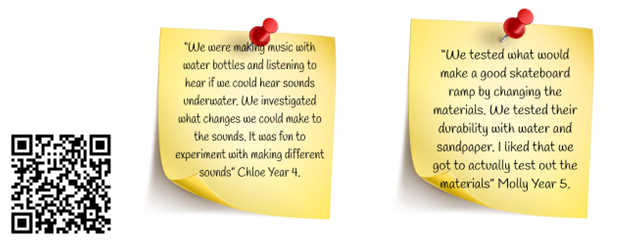
All children were invited to take part in the British Science Week poster competition. Thank you for your entries!
We cannot wait to take part in British Science Week next year!
SCIENCE WEEK 2024

This year’s theme for British Science Week was ‘time’. As a school, we took part in a range of fun, practical activities linked to time.
All classes contributed to a whole school Jamboard with their discussions about what the concept of ‘time’ means to them. This created some amazing discussions around the school. Can you add any thoughts to our Jamboard?

Over this academic year, we have been focussing on formulating questions in Science and thinking of possible ways to answer those questions. Can you find answers to any of our questions below?



Over the week, each class took part in activities linked to the concept of ‘time’:
- EYFS have carried out daily experiments over the course of the week. These have included watching the impact of water on skittles and studying the impact of putting celery in coloured water.
- Year 1 have investigated time through the seasons. They looked at the changes to trees and the weather. They have made season wheels.
- Year 2 have been learning about nutrition and healthy eating. They have used ‘Now Press Play’ to explore different foods within the food groups.
- Year 3 have been studying the different parts of plants.
- Year 4 have carried out an experiment involving pendulums. They wanted to find out what happens if you make the string of the pendulum shorter or make the weight on the end heavier. Some of them tried to make an accurate timer by making the pendulum swing twenty times in twenty seconds.
- Year 5 have looked at conductors and insulators within one class, while the other class looked at materials which are soluble and insoluble through investigation.
- Year 6 have been looked at electricity and the components of a working electrical circuit.

All children were invited to take part in the British Science Week poster competition. Below are the 5 winning responses. Congratulations to our winners!

This week we also thought about future careers in STEM professions through reading profiles about professionals in careers that challenge stereotypes. Why not use the link below to read more about smashing stereotypes.
https://www.britishscienceweek.org/smashing-stereotypes-the-profiles/
We cannot wait to take part in British Science Week next year!
Using Microscopes in Science Lessons
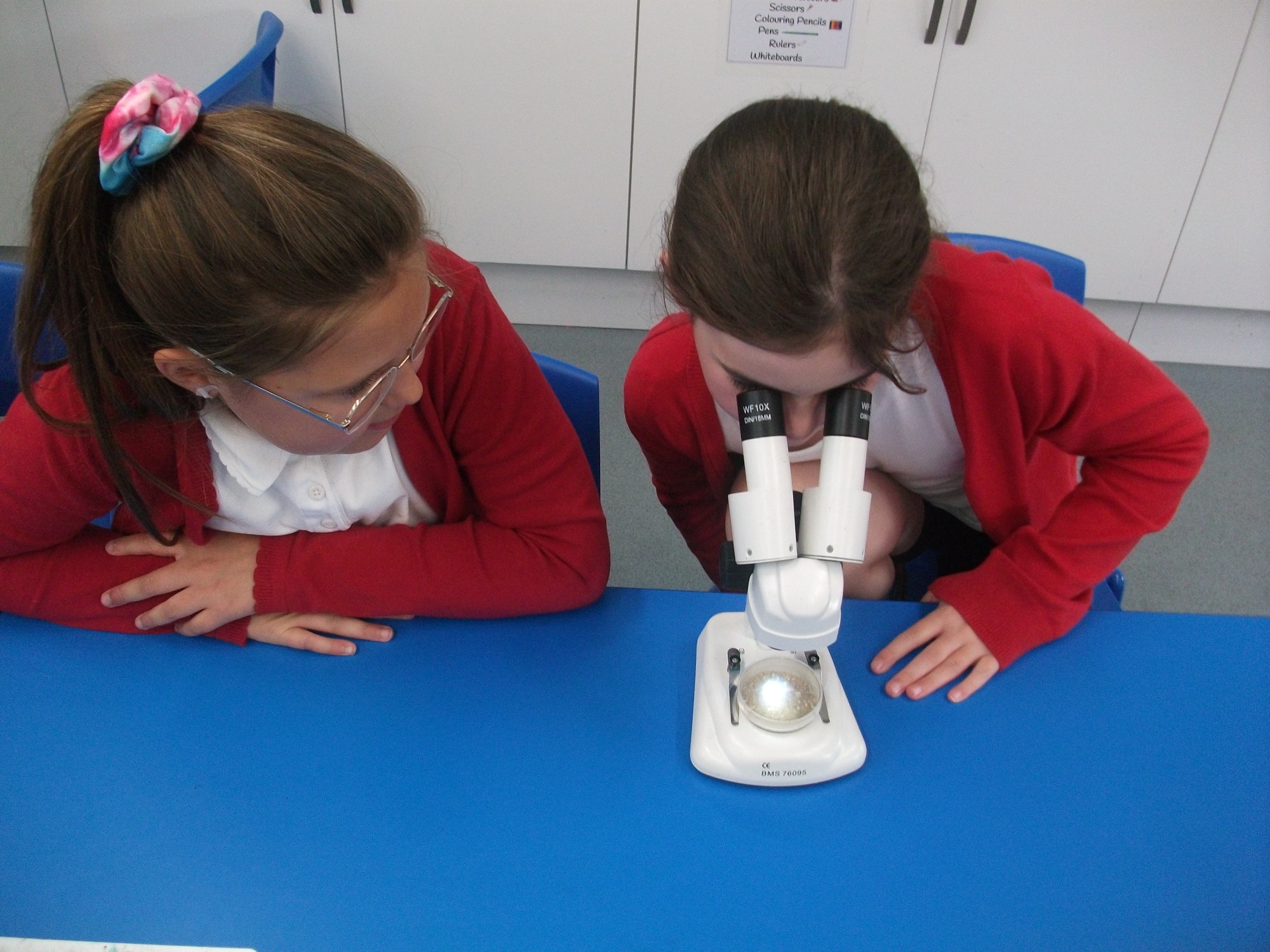
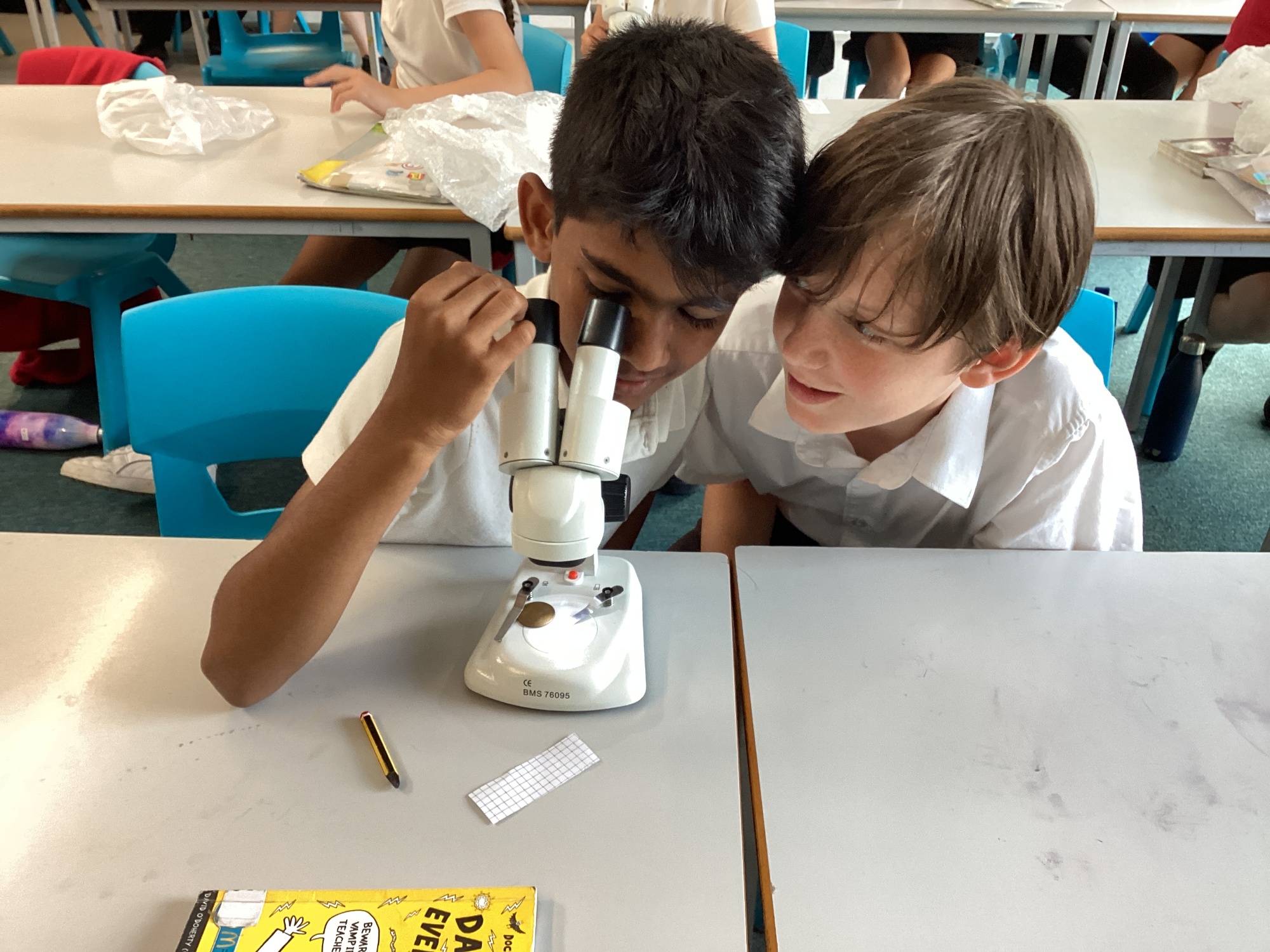
Over the past few months, we have been fortunate enough to borrow a microscope kit from the Royal Microscopical Society. All year groups have been using the microscopes to enhance their learning in Science.
Key Stage 2 took part in a Science Club on Tuesday lunchtimes. During this time, we have been using the microscopes to view samples of natural and man-made materials. We have observed materials that dissolve and don't dissolve in water. We have also looked at fruits and things that we can find in nature.
Please click on here for more details about the work.

